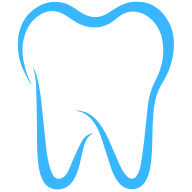7 Overhyped Dentistry Trends that Missed the Mark
In today's rapidly evolving world of dental care, some trends promise more than they deliver. From the pitfalls of DIY teeth-straightening kits to the limited benefits of tongue scraping alone, this article uncovers seven overhyped practices in dentistry. The journey begins by explaining why certain at-home orthodontic solutions might not be the best choice and concludes with insights on the efficacy of tongue scraping. Get ready to sift through expert opinions and discover practical alternatives to improve dental health.
- Avoid DIY Teeth-Straightening Kits
- Skip Charcoal-Based Toothpaste
- Consult Dentists Over Oil Pulling
- Beware of Activated Charcoal Risks
- Choose Fluoride Toothpaste
- Consider Cost-Effective Flossing Options
- Don't Rely on Tongue Scraping Alone
Avoid DIY Teeth-Straightening Kits
One over-hyped dentistry trend that hasn't fully lived up to expectations is DIY teeth-straightening kits, like clear aligners sent directly to consumers without proper dental supervision. While they promise convenience and lower costs, the lack of professional guidance can lead to unintended consequences, such as improper tooth movement or gum damage. Patients often underestimate the importance of regular check-ups and the need for adjustments throughout the treatment, which a qualified orthodontist would normally provide. Without this oversight, many end up with unsatisfactory results or even needing corrective treatments afterward.
As a dental expert, I recommend that patients seeking teeth alignment stick to treatments overseen by professionals. Alternatives like traditional braces or professionally administered clear aligners offer safer, more controlled results. Dentists and orthodontists can monitor progress and make necessary adjustments to ensure the teeth are moving properly, reducing the risk of complications. The investment in professional care ensures better long-term results and oral health.

Skip Charcoal-Based Toothpaste
In my experience, charcoal-based toothpaste is one dentistry trend that hasn't quite lived up to the hype. Promoted as a natural whitener, it's often marketed with promises of dramatic results without any chemicals. However, charcoal is abrasive and can wear down enamel with frequent use. Enamel loss leads to increased sensitivity and actually makes teeth more susceptible to staining over time.
A safer alternative for whitening would be professional whitening treatments, which are specifically formulated to protect enamel. For daily care, using a toothpaste with fluoride and low abrasiveness is ideal for both whitening and protecting enamel. It's important to consider long-term effects over quick fixes, especially when it comes to tooth health.

Consult Dentists Over Oil Pulling
Oil pulling, a practice where individuals swish oil in their mouths to whiten teeth, has gained popularity despite its lack of scientific support. Proponents claim it can remove stains and improve oral health. However, extensive research has failed to uphold these claims, and dental professionals often caution against it.
The time and effort involved may also outweigh any minimal benefits. To ensure effective teeth whitening, it is better to consult with a dentist who can recommend proven methods.
Beware of Activated Charcoal Risks
Activated charcoal has become a trendy ingredient in dental care products, particularly those aiming to whiten teeth. While marketed extensively for its supposed benefits, it poses significant risks, including eroding tooth enamel. This erosion can lead to increased tooth sensitivity and a higher likelihood of cavities.
Dentists caution against its regular use due to these potential harms. Seeking safer, dentist-approved whitening methods should be prioritized for long-term oral health.
Choose Fluoride Toothpaste
Many people are turning to fluoride-free toothpastes under the impression they are making a healthier choice. However, these products often lack the cavity protection that fluoride offers, which has been widely endorsed by dental professionals. Without fluoride, toothpastes may not provide adequate defense against decay, especially for those prone to cavities.
This trend could lead to an increase in dental problems over time. Choosing toothpaste with the right ingredients ensures better oral health.
Consider Cost-Effective Flossing Options
Water flossers, though marketed as superior alternatives to traditional flossing, come with a hefty price tag that is not always justified. Several affordable options are available that perform equally well in removing plaque and debris. The main advantage of water flossers is their ease of use, but this does not necessarily translate to better results.
Consumers need to be informed about cost-effective choices. Consulting with a dentist about the most suitable flossing tools can lead to better outcomes.
Don't Rely on Tongue Scraping Alone
Tongue scraping has been advocated as a solution for bad breath, but it often fails to address deeper issues. While it can temporarily remove surface-level bacteria, it does not tackle the root causes of bad breath, such as gum disease or poor oral hygiene. As a standalone practice, it might not offer significant improvement.
Reliance on tongue scraping alone can lead to neglect of more critical oral health habits. Comprehensive dental care practices remain essential for lasting fresh breath.

